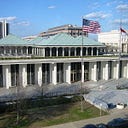Federal Judge Provides Certainty to Voters, Strikes Down Middle-of-Election Rule Change
Judge: “At bottom, the [Board of Elections] has ignored the statutory scheme and arbitrarily created multiple, disparate regimes under which North Carolina voters cast absentee ballots…”
Board actions “undermine confidence and create confusion”
Raleigh, N.C. — Federal Judge James Dever today issued a temporary restraining order blocking the N.C. State Board of Elections and Attorney General Josh Stein’s secretive settlement with Democratic Party super-lawyer Marc Elias that changes election law in the middle of the election.
Senate Leader Phil Berger (R-Rockingham) said, “A bipartisan supermajority agreed on the law governing this election months ago. The secretive effort by Attorney General Josh Stein and the N.C. State Board of Elections to rewrite that law while voting is underway was wrong, inappropriate, and created chaos.”
Sen. Berger continued, “Judge Dever restored sanity into this election by temporarily blocking the eleventh-hour rule changes to undo absentee ballot fraud protections. This is a win for every voter in the state who would prefer not to see the Board of Elections change the rules of the game after it’s already started.”
Judge Dever blocked the terms of the Board of Elections’ secretive settlement agreement through Oct. 16 and transferred the case to Judge William Osteen. The Board of Elections and Attorney General Stein had claimed that their secretive settlement agreement to undo absentee ballot fraud protections was actually to comply with an Aug. 4 ruling from Judge Osteen. But last week, Judge Osteen rebuked the Board and Attorney General Stein, calling their action “unacceptable” and “of significant concern.”
Below are excerpts from Judge Dever’s decision this morning. Read the full ruling here.
- “On October 2, 2020, however, after the election started and 319,209 North Carolina voters had cast absentee ballots, the NCSBOE [Board of Elections] materially changed the rules under which the election was taking place.”
- The Board’s rule changes “eliminate the statutory witness requirement, change the statutory dates and method by which absentee ballots are accepted, and change the statutory scheme as to who can deliver absentee ballots.”
- “At bottom, the NCSBOE has ignored the statutory scheme and arbitrarily created multiple, disparate regimes under which North Carolina voters cast absentee ballots…”
- “The NCSBOE inequitably and materially upset the electoral status quo in the middle of an election by issuing the memoranda and giving the memoranda legal effect.”
- “The memoranda, by materially changing the electoral process in the middle of an election after over 300,000 people have voted, undermines that confidence and creates confusion…”
